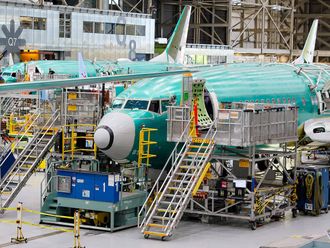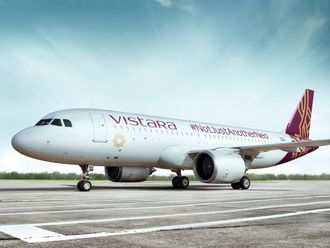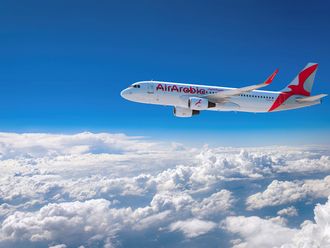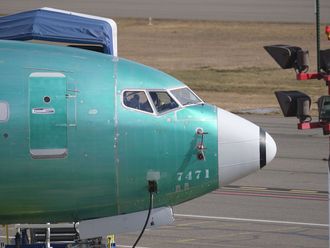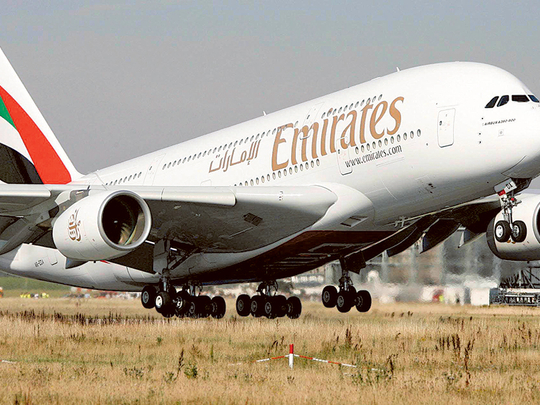
Dubai : Emirates airline has fired back at critics who claim its rise to become the world's largest carrier of international passengers is underpinned by unfair government subsidies for its fast-growing fleet of aircraft.
The Dubai-based carrier last week accused the Air Transport Association of America of making "misleading and false" statements about the benefits of export credit support, which is provided to support sales of aircraft from companies such as Airbus and Boeing.
"We believe airlines should have open access to financing," Tim Clark, Emirates president, said in a letter to James May, head of the ATA.
"By the same token, no airline should be singled out for restricted access to export finance."
Emirates' continued expansion through the latest recession has seen rivals such as Lufthansa, Air France-KLM and Delta Air Lines Inc call for European governments to help them meet the competitive threat of Middle East rivals that are using their geographical position to take market share from established entrants on long-haul routes.
No validation
"Critics rounding up on Emirates and other GCC-based airlines over their expansion, fleet procurement and access to export credit is nothing new, yet by the same token these critics neither substantiate their claims nor do they look to get their governments to amend policies that would allow them to benefit from the same tools being used by Middle Eastern rivals," Saj Ahmad, Chief Analyst with UK-based FBE Aerospace, told Gulf News.
"Emirates cannot be held culpable for the inherent failings of many European airlines who have rounded on the Dubai-based airline."
Gulf-based carriers have long had to deflect claims that they receive domestic subsidies in the form of cheap fuel, airport landing fees and tax breaks, allegations the carriers all deny.
Emirates' Clark said in his letter to the US trade group that the carrier's aircraft orders weren't driven by access to the subsidised financing, which became more popular during the recession as bank lenders withdrew from the sector.
"The availability of [export credit agency] guarantees is confirmed less than six months before delivery of the respective aircraft ... and we have only used export credits for just over 20 per cent of our total financing needs," said Clark. Planes are typically ordered as many as five years before delivery.
Clark also said an ATA position paper that found that the Dubai carrier's financing costs were cheaper than those at Delta was misleading. The financing for the US airline involved some older aircraft, which typically have higher funding costs, while that for Emirates was for all-new planes.
ATA confirmed it had received Emirates' letter.
— With inputs from Zawya Dow Jones
Criticism
Debate on financing rules
The simmering debate over access to aircraft subsidies comes as Emirates and Abu Dhabi's Etihad Airways contend with efforts by a number of governments — notably Canada and Germany — to restrict further expansion of flights.
An informal agreement between the US and European governments from 1986 prevents airlines from the home countries of Boeing and Airbus from receiving government export support for the companies' planes.
Twenty-four airlines from the home countries — the US, France, Germany, the UK and Spain — in October complained to their governments that the current arrangement is unfair to them. Many carriers in the ineligible group want access to export-credit financing, while some want it limited for all carriers in developed countries.
Emirates' expansion has been central to much of the criticism of the existing subsidy regime, which was drawn up to promote national aerospace exports.


